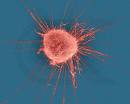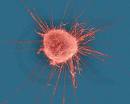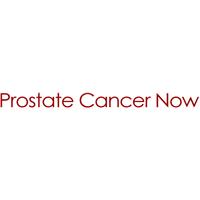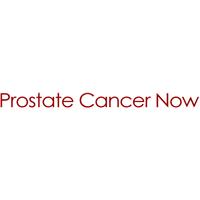London, July 2006: Every year in Britain, 32,000 men are disagnosed with prostate cancer, and 10,000 die of the disease. Although surgery and radiotherapy can be successful if it is diagnosed early, for one man in five, the disease has already spread by the time it is detected.
Conventional treatment involves hormone therapy: injections of a pituitary down-regulator (which halts production of the male hormone testosterone that stimulates the cancer cells), such as Zoladex, or anti-androgen tablets (which block testosterone reaching the cancer cells), such as Casodex. But in more than 50 per cent of patients, the body stops responding to the drugs after a few years; this is known as hormone-refractory prostate cancer.
Professor Ben Pfeifer, director of clinical research at the renowned Aeskulap Clinic in Switzerland, specialises in combining conventional and complementary cancer therapies. His success in treating prostate patients with a phytotherapy (the medicinal use of plants) protocol of four supplements, taken in specifically designed cocktails every day was recently featured in The Daily Telegraph.
These were Prostasol, which contains a range of herbs and dietary supplements with proven efficacy in supporting the prostate; Imupros, containing vitamins, trace elements, ginseng, lycopene, and green-tea extract to aid prostate function; Curcumin Complex, an extract of turmeric, which is a potent antioxidant – to mop up cancer-causing free radicals – and an anti-inflammatory; and Biobran, made from Japanese rice bran, which boosts the immune system.
At Anti-Ageing Conference London, Professor Pfeifer will speak on “Phytonutrient-Therapy and Immune System Support for Patients with Hormone-Refractory Prostate Cancer”
*************************************
This year Anti-Ageing Conference London has the largest gathering of the worlds pre-eminent medical speakers on the subject of anti-ageing health and regenerative medicine ever to be assembled in London.
The 3rd Anti-Ageing Conference (AACL), will be held at the Royal Society of Medicine in London from the 15-17 September 2006. This event offers a unique opportunity to learn from scientists and physicians about the latest medical advances from what some may consider controversial, to the proven and new treatments for the diseases of ageing.
This event is of importance to all medical professionals who wish to be cognisant on the latest medical and scientific developments in anti-ageing and rejuvenatory medicine from around globe. It is of particular importance to scientists, nutritionists, gerontologists, chiropractors, pharmacists, pharmaceutical chemists and research specialists, nursing practitioners, naturopathic doctors, dentists, bariatricians and weight management specialists.
Among the speakers are world-renowned experts who have driven the global debate on anti-ageing medicine including Dr Robert Goldman, Chairman, American Academy of Anti-Aging Medicine and Dr Ronald Klatz, Founding President, American Academy of Anti-Aging Medicine; Professor Imre Zs-Nagy, Professor John Ionescu, Dr Michael Klentze. Our keynote speaker on Sunday is Dr Deepak Chopra, endocrinologist and author and a practitioner in the use of conventional and Eastern medicine, as well as mind and body health.
As well as the opportunity to hear from these world experts and put questions to our speaker panel, this event provides a unique networking opportunity for healthcare professionals. All delegates receive a high-quality bound conference manual including speaker presentations and biographical materials. The fee also includes a buffet lunch, on all three days, refreshments and an invitation to the conference cocktail reception. In addition the latest anti-ageing products from around the world will be on show in the exhibition hall.
This prestigious scientific event will be introduced by Heather Bird-Tchenguiz MBA, Chairperson, AACL; Founder and President of HB Health; Director of the World Academy of Anti-Aging Medicine; Board Member, European Society of Anti-Aging Medicine and Director, British Society of Anti-Ageing Medicine.
Heather Bird-Tchenguiz comments: In most societies around the globe people are living longer so the importance of healthy ageing has never been greater. It is possible for older people to live full and healthy lives well into the latter part of their years but in most cases this does not happen because they and the medical professional are not always aware of the new opportunities that are available to them through anti-ageing medicine. That is what this conference is all about and why this knowledge is so vital.
The speaker programme for Anti-Ageing London 2006 is as follows:
Friday, 15 September Regenerative and Preventative Medicine
Heather Bird-Tchenguiz MBA – Welcome
Prof Larry Benowitz – Prospectives on stem cell differentiation in neuro surgery
Prof Geoffrey Raisman: Clinical application of olfactory cells in spinal cord injury
Prof David Naor PhD: Involvement of CD 44 in stem cell differentiation
Prof Stephen Minger – Stem Cells: Future Perspectives
Prof Stefan Krauss PhD: Forbrain development and neural stem cells
Dr Dasa Ciscova PhD: The efficacy of stem cell therapy in animal models of autoimmune diseases
Prof Tomas Ekstrom: Epigentics principles
Dr Tony Pellet: Umbilical Cord stem cells
Dr Miomir Knecevic – Commercialisation of stem cell research
Dr Ralf R Tonjes PhD: Stem Cell signatures as a tool for quality control of Innovative medicinal products
Andreas Junge MBA: Knowledge Management
Dr Octavi Quintana Trias: EU politics
Dr Marco Traub PhD: Symposium Overview
Saturday, 16 September
Heather Bird-Tchenguiz MBA – Welcome
Professor Dr Imre Zs-Nazy: The Theories of Ageing
Dr Ben Pfeifer MD Ph.D: Phytonutrient-Therapy and Immune System Support for Patients with Hormone-Refractory Prostate Cancer
Dr Mark A Babizayev PhD : Human Cataracts the role of Lipid Peroxidation and the efficacy of N-acetylcarnosine as a treatment
Phil Micans PharmB: Biological Age Measurement Practicalities and Issues
Dr Jennifer Krup MD ABAAM: HRT in Women : Questions. answers and more questions
Dr Brian Halvosen BDS LDS, RCS. FRSH: Holistic Dentistry with emphasis on Chelation and Preventative Health.
Dr Robert Goldman MD PhD FAASP DO FAOASM: (TBA)
Prof Dr Alfred Wolf: Chronic stress,burn-out and CFS, A new insight and preventive options
Sarah Noble Lic.Ac, MBAcC, MIMgt, MInstD: The Art & science of Spa Success – How to open a holistic Spa; Integrating spa services into your clinic for profitability
Patrick Holford BSc DipION FBant- Nutrition and Ageing
Sunday, 17 September
Dr Deepak Chopra
Dr Julian Kenyon MD :Photodynamic and Sonodynamic Therapy – An Important adjunct to Anti-Ageing Strategies
Dr John G Ionescu PhD: New Strategies to Slow Down the Photoaging of Human Skin
Dr Paul Clayton: Alzheimers Disease: Pharmaco-nutritional strategies to maintain the ageing brain
Dr Bill Cham PhD :Advances in the eradication of skin cancer
Dr Michael Klentze MD PhD ABAAM: New approaches for safe male hormone therapy.
Dr Eric Braverman, MD: Subclinical Hyperparathyroidism: A precursor of Osteoporosis and Dementia
Dr Ron Klatz MD: Closing remarks including New horizons for the clinical specialty of Anti-Aging Medicine: The Future with Biomedical Technologies.
The programme may be subject to change
Full details of the speaker programme and speaker biographies can be viewed at www.antiageingconference.com
There are various categories of registration for this event:
Full registration £350;
Day 1 Only £200;
Day 2 only £200;
Day 3 £200.
Book on-line on the registration page at www.antiageingconference.com Membership of certain medical societies may qualify for a discount. Further information may also be requested from conference@antiageingconference.com
Telephone: +44 (0) 2075816962
The events sponsors and supporters include HB Health, the British Society of Anti-Ageing Medicine; the European Society of Anti-Aging Medicine; the World Academy of Anti-Aging Medicine and The Trans European Stem Cell Therapy Consortium.
 Called digoxin is already used to treat congestive heart failure and abnormal heart rhythms. But scientists from the John Hopkins University in Baltimore have found that it lowered the risk of prostate cancer by 24 per cent by stopping the growth of the disease.
Called digoxin is already used to treat congestive heart failure and abnormal heart rhythms. But scientists from the John Hopkins University in Baltimore have found that it lowered the risk of prostate cancer by 24 per cent by stopping the growth of the disease.










